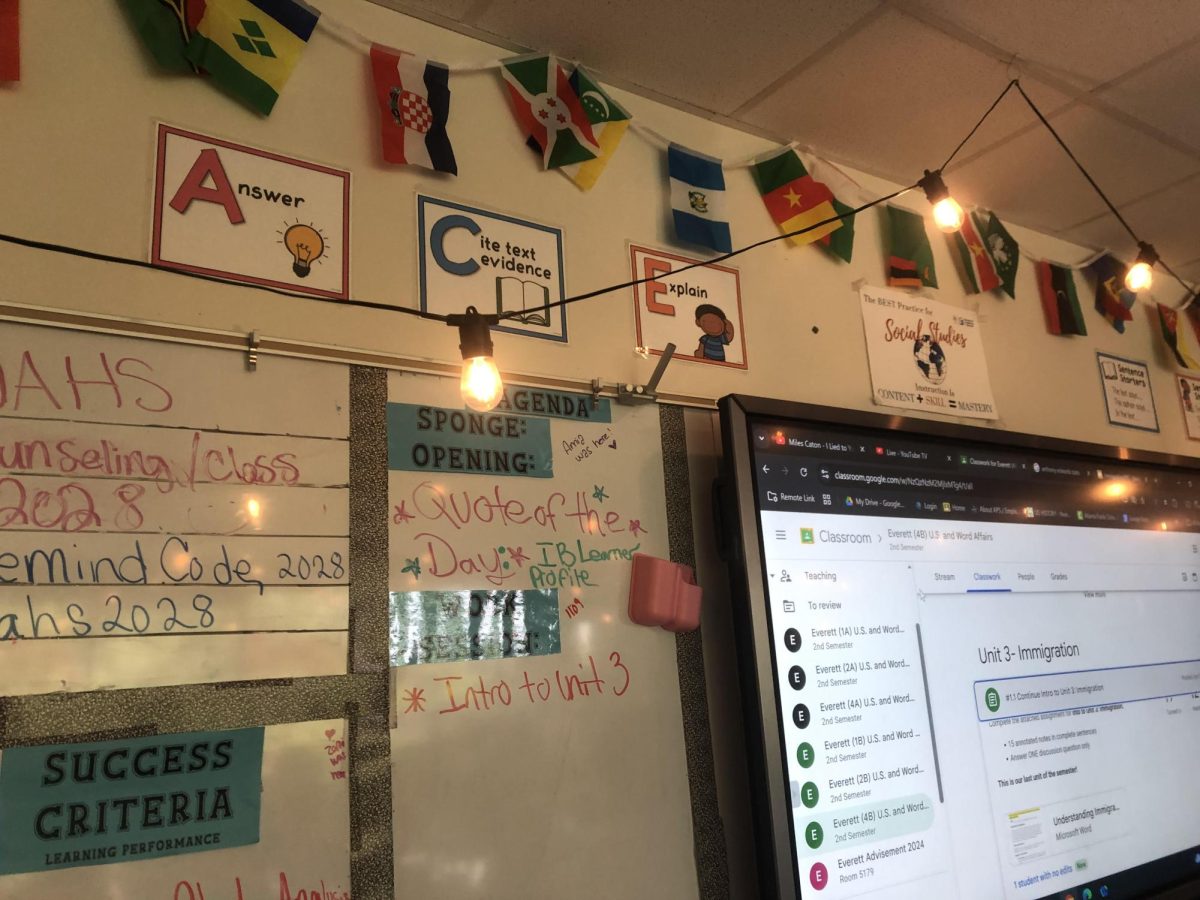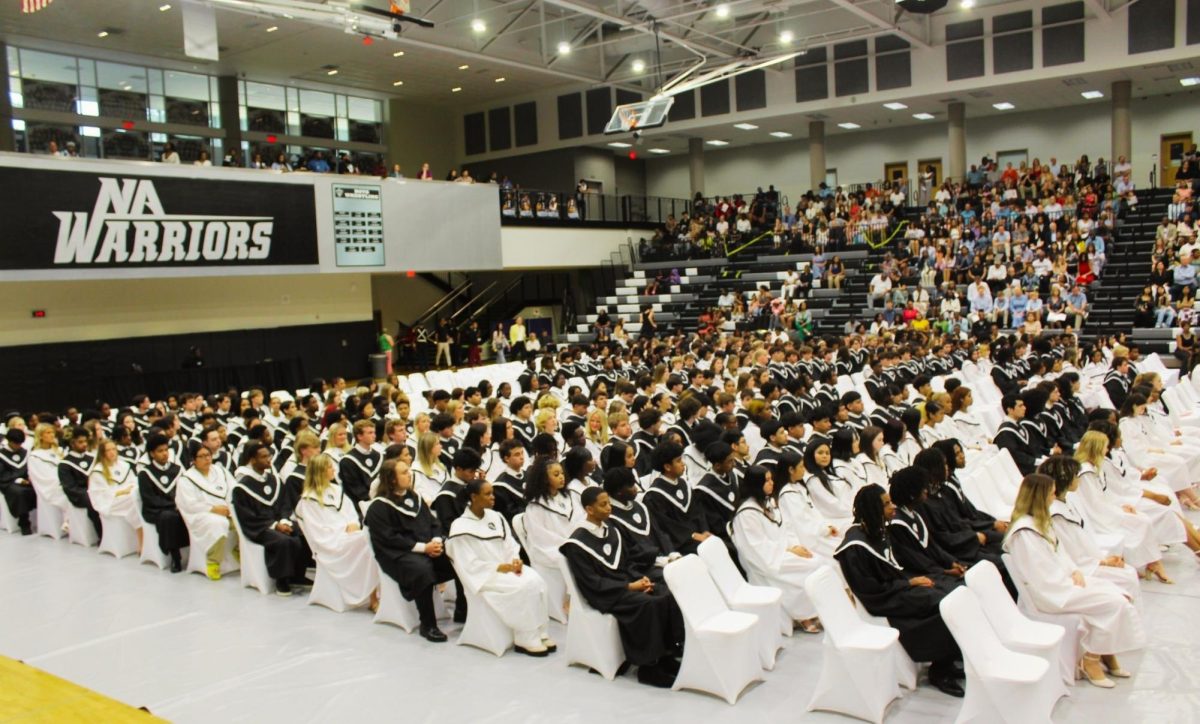Phones now are a large part of the classroom, as many students use their phones throughout the day. There are varying opinions on phones within the classroom, with some teachers choosing to ban phones altogether, some allowing limited time on phones, and others integrating them into classroom learning. Different teachers throughout North Atlanta have differing opinions on how to navigate the issue of phone usage.
Some teachers realize phones will never fully disappear in the classroom. Instead they choose to implement them into their teaching style. In the world’s post-pandemic era, most everyday tasks exist on screens, including research, assignments, and general communication. So if you can’t beat ‘em, join ‘em. With a baseline expectation of trust in the classroom, phone regulation has become much easier for certain teachers. Students use their phones when needed and put them away when the time comes to pay attention. Since phones are considered an essential part of life with numerous applications, why not use some of those to help in students’ learning?
Teachers on this side of the phone debate report less stress and a stronger relationship with their students. Like all teachers, they have a certain expectation of how students should act when in regards to their phone usage. For seniors especially, there is an expectation of maturity that comes with almost being an adult, so phone usage is a small issue for some teachers who primarily have them. “In order to be a good teacher, you need a good work environment of respect and trust,” said French teacher Robin Oliver. “Relaxed kids achieve more.”
However, other teachers have a more old school approach to phones in the classroom, and are against most cell phone usage as it is seen as a distraction and a learning hindrance. When they were in high school, having your phone out was a much bigger deal than it is now, and dealing with those same problems amplified can be seen as disrespectful. Teachers also worry about students’ learning capabilities, as phones can be relied on too heavily in education. Whether for translating in language classes or looking up answers to a worksheet, many students can get by on some assignments just by looking up what they need to, resulting in low grades and a loss in retention.
Regulating their policies, however, remains a challenge because some students may refuse to give up their phones, have multiple phones, or fear the risk of their phones being stolen if put in a bucket or case. There is also no district-wide policy, which means that teachers make up their own rules for maintaining students’ attention. Nevertheless, phone usage is still allowed at some points in these teachers’ classrooms when it becomes a necessity. “Students need to be more self-sufficient and not just go to technology,” said Spanish teacher David Beek. “Technology is the easy way out.”
In the middle of this debate, there are teachers whose policies depend on class time. When the teachers are giving instruction, the phones are supposed to be off and students are at attention. However, in free time or independent work time, students can listen to music or use their phone to do assignments so long as they do not become a distraction. There is a time and place for cell phone usage, and students must prove they have the discipline to follow these rules, no matter which ones that they are. “The key to this problem isn’t regulating the phones,” said math teacher Deborah Johnson. “The key is ensuring the students have discipline.”
As phones become a bigger part of students’ lives every year, teachers are learning to coexist with their students and their phones. They can be both an important tool for learning and growing, or a distraction and hindrance to retention. As the years go on, different methods are used with different results when trying to engage classes, and teachers will continue to consider the most effective class policies.














